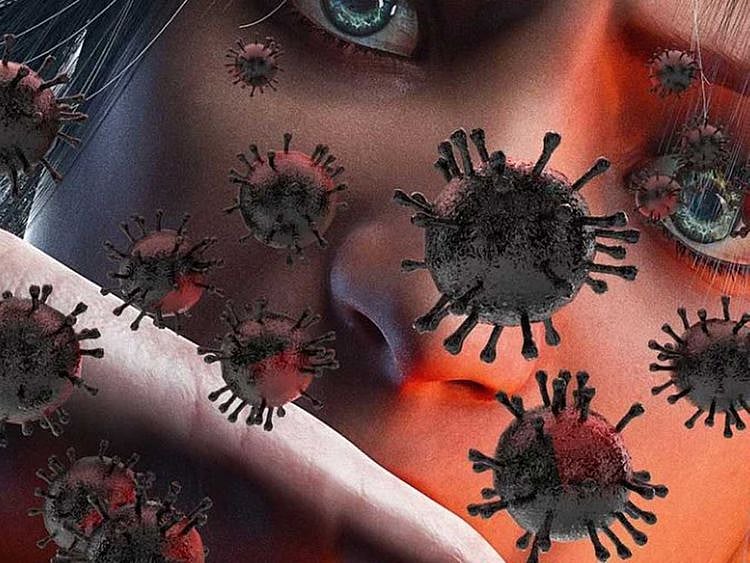Why Worry: I am always worried about catching a disease, coronavirus outbreak made it worse, please help
‘With the outbreak of coronavirus, my life is in a mess. I am even afraid to step outside

Dear doctor,
I am always worried about catching a disease. I clean myself, especially my hands and feet even if I step out of the house for a few seconds. I am always worried about catching some disease or the other.
I keep reading about diseases and disorders and keep checking whether I suffer from any of them.
With the outbreak of coronavirus, my life is in a mess. I am afraid to step outside my house. Worried about getting the virus and dying. I keep washing my hands and feet. I also keep applying hand sanitizers and disinfectants on my hands and feet and my face.
If anyone touches me or comes close to me, I panic and try to move away. I am finding it difficult to interact or be part of the society. Please help me.
Thanks and regards, please don’t mention my name.
Question answered by Subas Pradhan, Psychiatrist, Al Amal Psychiatric Hospital, Dubai
Hi,
Thanks for asking the question as it's always better to clarify and get it out of your chest than suffer in silence by assuming the worst!
Let me start by mentioning that Coronavirus (COVID-19) has been declared a pandemic by the World Health Organization after considering its high infectivity and global spread. Although, it's highly contagious it's a less lethal disease, meaning it is less likely to kill people compared to its other predecessors. The major worry is that the sufferers may remain asymptomatic for a few weeks before people start manifesting symptoms. One basic strategy adopted worldwide to contain its spread is to isolate individuals so that the virus cannot transmit itself to infect others.
From that standpoint, it's actually essential for people to be isolated and maintain basic health practices like cleaning hands, etc. The problem, however, is that when some people take it overboard and suffer because of the consequences of their excessive worrying and obsessive actions!
From a medical perspective in spite of limited information, here, we have several diagnostic possibilities:
1) Hypochondriasis:
This is a condition where one is unduly concerned about a serious illness which could be due to an impaired body image or perception. If that’s the diagnosis then psychotherapy is the treatment of choice. However, medications; primarily antidepressants, are used to treat the condition especially when psychological therapies do not work.
2) Obsessive compulsive disorders (OCD)
OCD is another possibility if obsessive and compulsive symptoms dominate the picture and causes socio-economic declining of the individual.
A careful medical examination is needed to exclude other pathologies before one can embark upon this diagnosis. Interestingly in such people, there’s a real threat of infection lurking around in the community. Psychotherapy remains the primary mode of treatment in this case and medications may be needed if the former fails to bring on an adequate improvement.
However, it’s more likely that you are overwhelmed with stress contributed by a number of factors, including the real threat of coronavirus infection in the community and sensory overload of information about this disorder.
Here are a few tips endorsed by reputable international organizations to maintain our mental health and retain our productivity during these difficult times.
Do not read too much:
While being informed is a positive thing it's vital to read selectively from authentic sources than gobbling up all fake stories and esoteric remedies from insensitive pranksters. This would help you not to make many scary assumptions!
Anticipate distress:
It's important to understand that distress and worry are normal human experiences and serve a purpose in our lives. Everyone, however, responds differently to stressful situations. Unless you accept this fact you are likely to blame your surroundings or yourself for feeling bad. This is especially so if you have had previous experiences with mental health problems.
Stay connected:
It's vital for your mental health to stay connected with your near and dear ones, including your GP/counselor or a helpline if available. It's important to talk to your children clearly about these scary topics rather than shying away as this might help reduce their trauma and suffering.
Self-isolation:
In the event of voluntary or mandatory self-isolation/ quarantine please keep in mind the bigger picture, because this is being done to help yourself and the society to remain healthy in the long run. It might be a period of bonding with family, self-reflection, and growth! It's important to stay engaged and have a routine in place to navigate you through this stage.
Take care of your body:
Take deep breaths, stretch, or meditate. Try to eat healthy, well-balanced meals, exercise regularly, get plenty of sleep, and avoid alcohol and drugs.
If you have questions that you would like answered by a mental health professional in the UAE, please write in to readers@gulfnews.com. Also, please let us know if you'd rather stay anonymous.
Disclaimer: This blog is a conversation and is not an alternative for treatment. The recommendations and suggestions offered by our panel of doctors are their own and Gulf News will not take any responsibility for the advice they provide.
Sign up for the Daily Briefing
Get the latest news and updates straight to your inbox
Network Links
GN StoreDownload our app
© Al Nisr Publishing LLC 2025. All rights reserved.